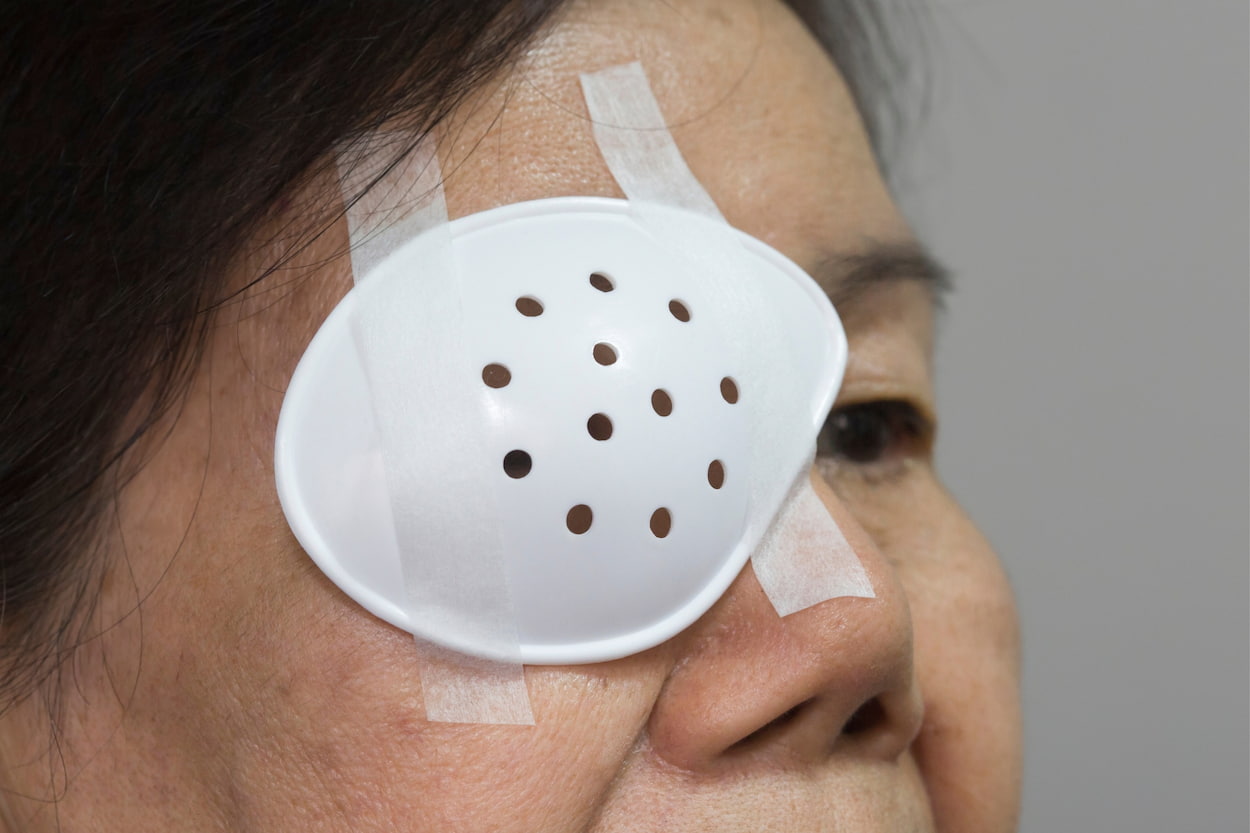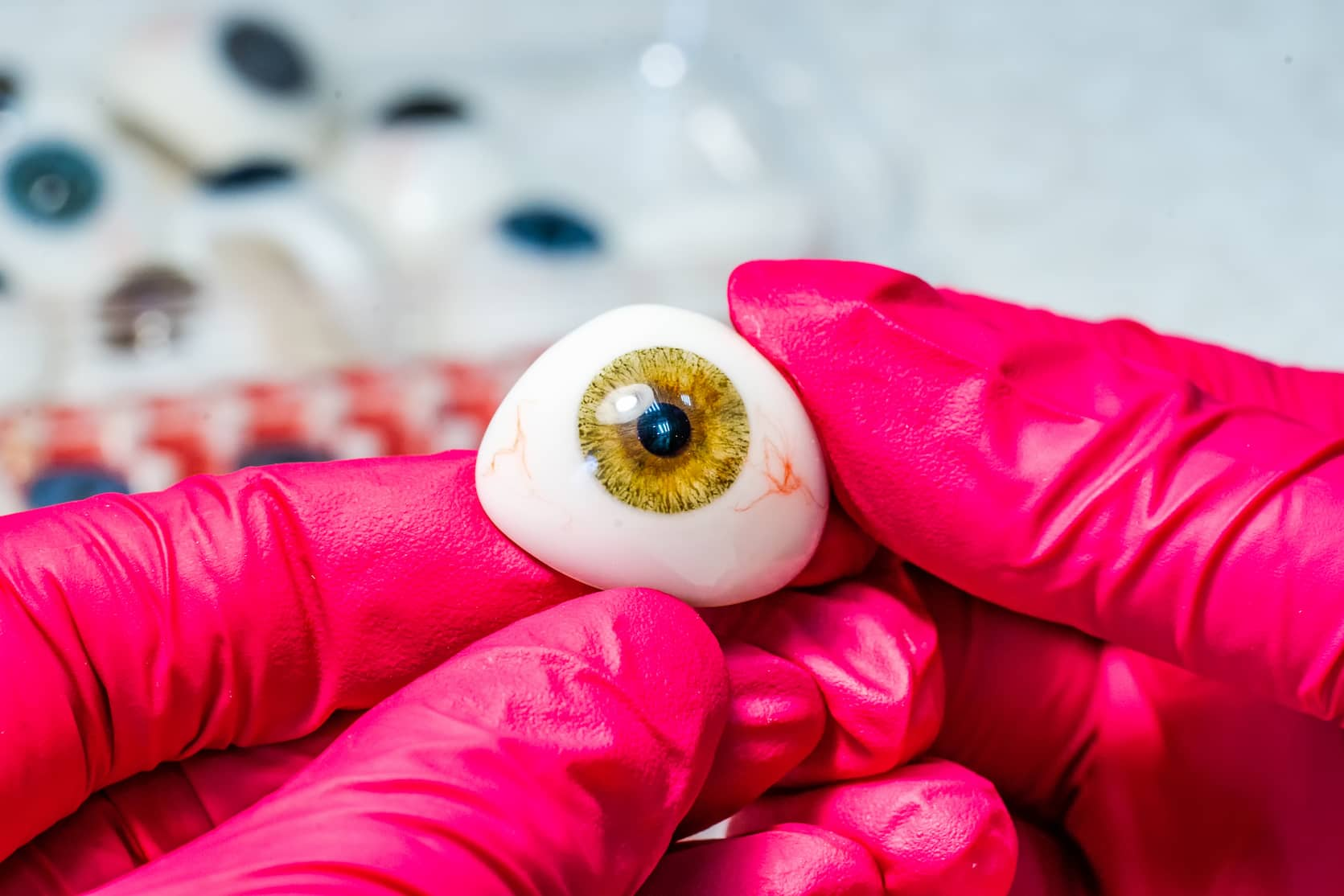
Floaters and Flashing Lights in Your Eyes
Have you ever experienced flashing lights in your eyes? It can be quite concerning when you see sudden flashes or sparks of light that seem to appear out of nowhere. While they may be a sign of something serious, they can also be harmless. In this article, we’ll discuss what flashing lights in your eyes are, what causes them, and what you can do about them.
What Are Eye Flashes and Floaters?
Eye flashes and floaters are visual disturbances that can occur in one or both eyes. Eye floaters are specks or shapes that appear to float in your field of vision. They can take on different shapes and colors and may be more noticeable when looking at a bright background, such as a blue sky or a computer screen.
On the other hand, eye flashes are brief, bright bursts of light that may appear as a streak or zigzag line in your vision. They can occur spontaneously or may be triggered by moving your eyes or your head. Eye flashes may be more noticeable in low-light conditions, such as when you’re in a dark room or looking at a dimly lit screen.
What Causes Eye Flashes and Floaters?
Eye flashes and floaters are caused by changes in the vitreous, a clear gel-like substance that fills the inside of the eye. As we age, the vitreous can become more liquid, which can cause it to pull away from the retina, the light-sensitive tissue at the back of the eye. This is known as a posterior vitreous detachment (PVD) and is a common cause of eye floaters.
PVD can also cause traction on the retina, which can result in eye flashes. Eye flashes can also be caused by migraines, which can affect the visual cortex in the brain and cause brief bursts of light in the visual field.
While eye flashes and floaters are usually harmless, they can be a sign of a more serious eye condition, such as retinal detachment or a tear in the retina. These conditions require prompt medical attention to prevent permanent vision loss.
What Does It Mean When You See Flashing Lights in Your Vision?
Flashing lights in your vision, also known as photopsia, is a symptom characterized by the perception of flashing lights or bright spots in your visual field. This sensation can range from brief flashes of light to sustained light shows that can obscure your vision. Flashes of light can occur in one or both eyes, and they may be accompanied by other symptoms like eye floaters, which are small specks that appear to float in your field of vision.
Flashes of light in your eyes can occur for a variety of reasons, including:
Migraines: Some people experience flashes of light or other visual disturbances as part of a migraine headache.
Posterior vitreous detachment (PVD): This occurs when the vitreous, the gel-like substance that fills your eye, begins to shrink and pull away from the retina, which can cause flashes of light or floaters in your vision.
Retinal tear or detachment: If the vitreous pulls too hard on the retina, it can cause a tear or detachment, which can cause flashing lights or floaters in your vision.
Trauma to the eye: A direct blow to the eye can cause flashing lights or floaters in your vision.
Certain medications: Some medications, like digitalis or quinine, can cause photopsia as a side effect.
While flashes of light can be a symptom of a serious condition like retinal detachment, in many cases, they’re not a cause for concern and will resolve on their own. However, it’s important to seek medical attention if you experience any concerning symptoms like loss of vision or eye pain.

Dealing with Flashing Lights in Your Eyes
If you experience flashing lights in your eyes, it is important to seek medical attention right away. In some cases, flashing lights can be a sign of a serious condition that requires immediate treatment. Here are some steps you can take:
Schedule an eye exam: The first step is to schedule an eye exam with an ophthalmologist or optometrist. During the exam, the eye doctor will examine your eyes and perform a thorough evaluation of your vision. They may use special instruments to look at the back of your eye, such as a slit lamp or ophthalmoscope.
Follow your doctor’s recommendations: Depending on the cause of your flashing lights, your doctor may recommend different treatments or follow-up appointments. For example, if you have eye floaters, your doctor may recommend monitoring them but not taking any action. If you have a retinal detachment, your doctor may recommend surgery to repair the retina.
Monitor your symptoms: It is important to monitor your symptoms and report any changes to your doctor. If you notice an increase in the number of floaters or changes in your vision, you should contact your doctor right away. In some cases, such as with PVD, your symptoms may resolve on their own over time, but it is important to stay vigilant and report any changes to your doctor.
Take care of your eyes: Taking care of your eyes can help prevent certain conditions that can cause flashing lights. Some tips for maintaining good eye health include:
Eating a healthy diet that includes fruits, vegetables, and omega-3 fatty acids
Wearing sunglasses that block UV rays
Taking breaks when working on the computer or doing other tasks that require prolonged focus
Finally, to have a regular eye examination.
Are Eye Flashes Serious?
Flashes of light in your vision can be a sign of a serious condition like a retinal tear or detachment, which requires immediate medical attention. If you experience sudden onset flashes of light or other visual disturbances, you should seek medical attention right away.
Other causes of photopsia, like PVD or migraines, are not typically serious and will resolve on their own. However, it’s still important to see an eye doctor to rule out any underlying conditions and to ensure that your eyes are healthy.
Can High Blood Pressure Cause Flashing Lights in Eyes?
High blood pressure, also known as hypertension, is a condition in which the force of blood against the walls of your blood vessels is too high. While high blood pressure is a known risk factor for heart disease, stroke, and other health conditions, it’s not typically a cause of flashing lights in your vision.
However, if you have high blood pressure, it’s important to manage it properly to reduce your risk of complications like heart attack, stroke, and retinopathy, which is damage to the blood vessels in your retina. In some cases, retinopathy can cause visual disturbances like flashes of light or floaters in your vision.
The Study of Flashing Lights in Your Eyes
In a comprehensive study conducted at the National Eye Institute and published in the American Journal of Ophthalmology, researchers investigated the causes and characteristics of eye flashes and floaters. The study involved a large cohort of individuals with various visual disturbances, including eye floaters and flashes of light. Through detailed eye examinations and diagnostic imaging, the researchers determined that the majority of cases were associated with benign causes such as posterior vitreous detachment (PVD). However, a subset of individuals presented with retinal tears or detachments, emphasizing the importance of timely medical evaluation when experiencing these symptoms. The study concluded that while many cases are harmless, flashes of light and floaters should not be ignored, as they can be a sign of potentially serious eye conditions.
How Do You Stop Flashing Lights in Your Eyes?
In most cases, flashes of light in your vision will resolve on their own and don’t require any treatment. However, if you have persistent or bothersome eye floaters, your eye doctor may recommend a procedure known as vitrectomy. This procedure involves removing the vitreous from your eye and replacing it with a saline solution. While vitrectomy can help reduce the number or severity of eye floaters, it does carry some risks, including retinal detachment and infection. In some cases, migraines can cause flashing lights in your vision.
If you experience migraines with visual disturbances like flashes of light, your doctor may recommend medications to help prevent or manage your migraines. If you’re experiencing flashes of light in your vision, there are a few things you can do to help reduce your symptoms:
Rest your eyes: If you’re experiencing eye fatigue or strain, taking a break and resting your eyes can help reduce your symptoms.
Manage your stress: Stress can exacerbate eye symptoms like flashes of light or eye floaters. Finding ways to manage your stress, like meditation or exercise, can help reduce your symptoms.
Avoid bright lights: Bright lights can trigger photopsia in some people. Wearing sunglasses or avoiding bright lights can help reduce your symptoms.
See an eye doctor: If you’re experiencing flashes of light or other visual disturbances, it’s important to see an eye doctor to rule out any underlying conditions and ensure that your eyes are healthy.
Healthy Türkiye Notes
Flashing lights in your eyes can be a concerning symptom, but in many cases, they’re not a cause for concern and will resolve on their own. However, if you’re experiencing sudden onset flashes of light, it’s important to seek medical attention right away to rule out any serious underlying conditions like a retinal tear or detachment. If you have persistent or bothersome eye floaters, your eye doctor may recommend a vitrectomy, but this procedure carries some risks. Managing your stress, avoiding bright lights, and seeing an eye doctor regularly can help reduce your symptoms and ensure that your eyes are healthy.




